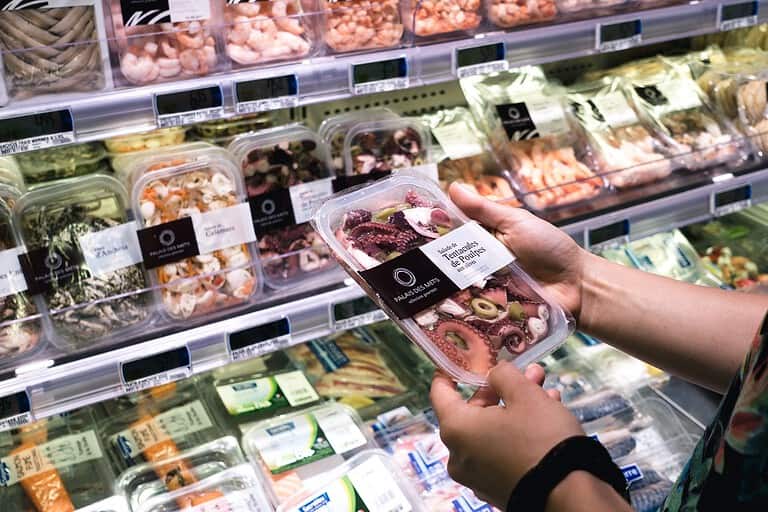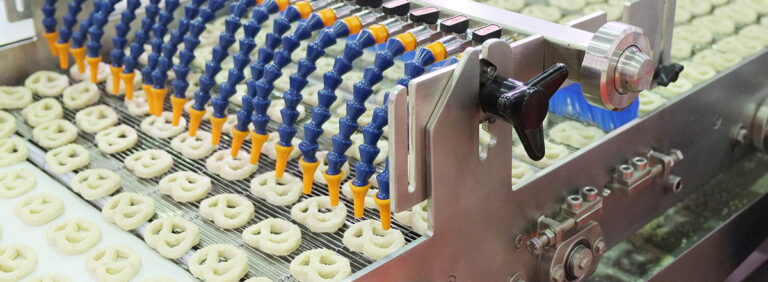Future of Food Processing: Trends and Predictions for the Coming Years
The food processing industry is an essential component of the global food supply chain, responsible for transforming raw ingredients into value-added food products that meet the demands of consumers. With the world’s population expected to reach 9.7 billion by 2050, the food processing industry faces significant challenges in meeting the growing demand for food. As such, industry leaders are looking to the future of food processing to identify trends and predictions that will shape the industry in the years to come.
One of the most significant trends in the future of food processing is the increasing use of technology. Advances in technology are driving innovation in the industry, with new systems and processes emerging to improve efficiency, reduce waste, and enhance product quality. From automated processing lines to artificial intelligence (AI) and machine learning (ML) algorithms, technology is transforming the food processing industry.
Another trend that is shaping the future of food processing is the growing focus on sustainability. As consumers become more aware of the environmental impact of food production, there is a growing demand for sustainable food products. This trend is driving the development of new processing methods that reduce waste, conserve resources, and minimize the carbon footprint of food processing operations. As such, sustainability is becoming an essential consideration for food processing companies looking to remain competitive in the years to come.
Current State of Food Processing
Food processing is an essential part of the food industry that involves transforming raw materials into finished products that are safe, nutritious, and appealing to consumers. The current state of food processing is characterized by the increasing adoption of advanced technologies and practices that aim to improve efficiency, quality, and sustainability.
One of the major trends in food processing is the use of Industry 4.0 technologies, such as automation, artificial intelligence and the Internet of Things (IoT), to optimize production processes and reduce costs. For example, smart sensors can be used to monitor the quality and safety of food products in real-time, while machine learning algorithms can be used to predict and prevent equipment failures.
Another trend is the increasing demand for clean-label and minimally processed foods. Consumers are becoming more aware of the health and environmental impacts of their food choices, and are seeking products that are free from artificial ingredients, preservatives, and additives. Food processors are responding to this trend by using natural and organic ingredients, and by developing new processing methods that preserve the nutritional value and sensory properties of the raw materials.
Food safety is also a top priority in the food processing industry. With the increasing globalization of the food supply chain, there is a growing need for robust food safety management systems that can ensure the quality and safety of food products from farm to fork. This includes implementing strict hygiene and sanitation practices, conducting regular inspections and audits, and using traceability systems that can track the movement of food products throughout the supply chain.
Overall, the current state of food processing is characterized by a focus on innovation, sustainability, and safety. As the food industry continues to evolve, it is likely that we will see even more advanced technologies and practices being adopted to meet the changing needs and preferences of consumers.
Trends in Food Processing
Sustainability
Sustainability is a critical trend in food processing. Consumers are increasingly aware of the environmental impact of food production and processing. Therefore, food processing companies are focusing on reducing their carbon footprint by adopting sustainable practices. For instance, some companies are using renewable energy sources like solar and wind power to reduce their reliance on fossil fuels. Others are implementing waste reduction strategies, such as recycling and composting, to minimize their impact on the environment.
Automation
Automation is another significant trend in food processing. With the advancement of technology, food processing companies are increasingly adopting automated systems to improve efficiency and reduce labor costs. For instance, automated sorting systems can sort and grade fruits and vegetables more accurately and quickly than manual labor. Automation can also improve food safety by reducing the risk of contamination from human contact.
Personalization
Personalization is a trend that is gaining traction in the food processing industry. Consumers are increasingly interested in personalized food products that meet their unique dietary needs and preferences. Therefore, food processing companies are using data analytics and artificial intelligence to develop personalized food products. For instance, some companies are using genetic testing to create personalized nutrition plans for their customers. In conclusion, sustainability, automation, and personalization are significant trends in food processing. Companies that adopt these trends are likely to stay competitive in the market and meet the evolving needs of consumers.
Predictions for the Future of Food Processing
Increased Use of Artificial Intelligence
The food processing industry is expected to see a significant increase in the use of artificial intelligence (AI) in the coming years. AI can help food processors optimize production processes, reduce waste, and improve quality control. For example, AI-powered sensors can detect defects in food products, reducing the need for manual inspection. AI can also help predict demand and optimize supply chain management, ensuring that food products are delivered to consumers more efficiently.
AI can also help food processors develop new products that better meet consumer preferences. By analyzing consumer data and feedback, AI can help identify trends and develop new recipes and flavors that are more likely to be successful in the market. This can help food processors stay ahead of the competition and offer products that better meet consumer demands.
More Sustainable Packaging Options
As consumers become more environmentally conscious, the food processing industry is expected to see a rise in demand for sustainable packaging options. This includes biodegradable and compostable packaging materials, as well as reusable containers and packaging. Food processors will need to invest in new technologies and materials to meet this demand and reduce their environmental impact.
Food processors will also need to consider the environmental impact of their packaging throughout the entire supply chain, from production to disposal. This includes reducing the amount of packaging used, using recycled materials, and ensuring that packaging is disposed of properly.
Rise of Plant-Based Foods
The demand for plant-based foods is expected to continue to rise in the coming years, driven by concerns over health, sustainability, and animal welfare. This presents both a challenge and an opportunity for the food processing industry.
Food processors will need to invest in new technologies and processes to develop plant-based products that are more appealing to consumers, both in terms of taste and texture. This includes developing new plant-based protein sources and improving the taste and texture of existing products.
At the same time, the rise of plant-based foods presents an opportunity for food processors to tap into new markets and diversify their product offerings. By developing innovative plant-based products, food processors can stay ahead of the competition and meet the changing demands of consumers.
Challenges and Opportunities
Regulatory Hurdles
One of the biggest challenges facing the food processing industry is navigating the complex regulatory landscape. Regulations regarding food safety, labeling, and environmental impact are constantly changing and can vary greatly depending on the region. Compliance with these regulations can be costly and time-consuming, especially for smaller companies with limited resources.
However, these regulations also present an opportunity for companies to differentiate themselves by demonstrating their commitment to safety and sustainability. By investing in compliance and staying up-to-date with regulatory changes, companies can build trust with consumers and gain a competitive advantage.
Consumer Acceptance
Another challenge facing the food processing industry is consumer acceptance of new technologies and products. While some consumers are eager to try new foods and food processing methods, others are more skeptical and may be resistant to change.
To overcome this challenge, companies must educate consumers about the benefits of new technologies and products, such as improved safety, nutrition, and sustainability. They must also be transparent about their processes and ingredients, and work to build trust with consumers.
Investment Opportunities
Despite these challenges, the future of food processing is bright, with many exciting investment opportunities on the horizon. Technologies such as artificial intelligence, robotics, and blockchain are already being used to improve efficiency, traceability, and safety in the industry.
Investors looking to capitalize on these opportunities should focus on companies that are investing in research and development, and that have a strong track record of innovation and sustainability. They should also consider the potential impact of changing consumer preferences and regulatory changes on the industry.
Conclusion
In conclusion, the future of food processing looks promising with exciting trends and predictions on the horizon. The industry is expected to continue to embrace new technologies such as artificial intelligence, robotics, and automation to improve efficiency and reduce waste. The demand for sustainable and eco-friendly food processing methods is also expected to rise, with a focus on reducing carbon footprint and using renewable energy sources.
Additionally, there is a growing interest in personalized nutrition and functional foods, which can improve health and prevent chronic diseases. As the food processing industry evolves, it will be important for companies to stay up-to-date with the latest trends and technologies to remain competitive and meet consumer demands.







